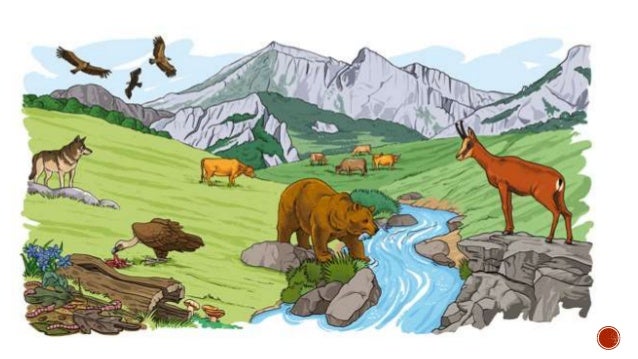What is another word for producer?
autotroph
What symbiotic relationship benefits both organisms involved?
mutualism
What types of factors are the nonliving factors of an ecosystem?
abiotic factors
What are the 2 types of limiting factors?
density independent and density dependent
What is the greenhouse effect?
the natural warming of the surface and lower atmosphere of Earth
What is a decomposers job?
to break down dead organisms and return their nutrients into the soil
What's an example of parasitism?
flea+dog, fungus+tree, tapeworms+mammals
What is carrying capacity?
the maximum population size of a species the environment can hold, given the food, habitat, water, and other necessities available in the environment.
What is one event that could affect the population of a species?
tornado, fire, habitat loss, excess predators, etc.
What causes ozone depletion?
pollution
Where does almost all energy found on Earth come from?
the sun
What's the symbiotic relationship in which one species benefits while the other is unaffected?
commensalism
Explain the following terms:
herbivore, carnivore, omnivore,
herbivore = plant eater
carnivore = meat eater
omnivore = eats both
Give 2 examples of both density dependent factors and density dependent factors.
density dependent: competition and predation
density independent: severe weather, habitat loss
Identify which of the following terms are caused by humans, and which is a natural occurrence:
the greenhouse effect, climate change
caused by humans = climate changes
natural occurrence = greenhouse effect
Which is more complex and detailed, a food chain or a food web? Explain.
a food web, because it's all of the feeding relationships in an ecosystem.
In parasitism, one organism harms the other. The organism that's harmed is called the _________
host
Put the following words in order from smallest size to largest:
community, organism, ecosystem, biosphere, population
organism, population, community, ecosystem, biosphere
What factors affect population growth?
food availability, natural predators, water supply, environmental conditions and living space
What are some examples of human activities that have contributed to climate change?
use of CFC's, burning of fossil fuels, polluting the atmosphere, deforestation, etc.
How much energy is lost per trophic level?
10%
Give 3 examples of commensalism.
whale+barnacle, remora fish+sharks, cattle egrets+cattle, etc.

List 3 abiotic factors AND 3 biotic factors that you see.
biotic factors - grass, animals, trees, flowers, etc.
abiotic factors - mountain, sky, rocks, etc.
How does a species reaching it's carrying capacity affect population growth?
it will cause the species population to decline, as their environment cannot support so many of them
Whats the difference between climate change and global warming?
Global warming mainly refers to the changing of global temperatures due to the abundance of greenhouse gases int he atmosphere. Climate changes refers to the constant changes in temperature, rainfall, wind, etc. over a long period of time.